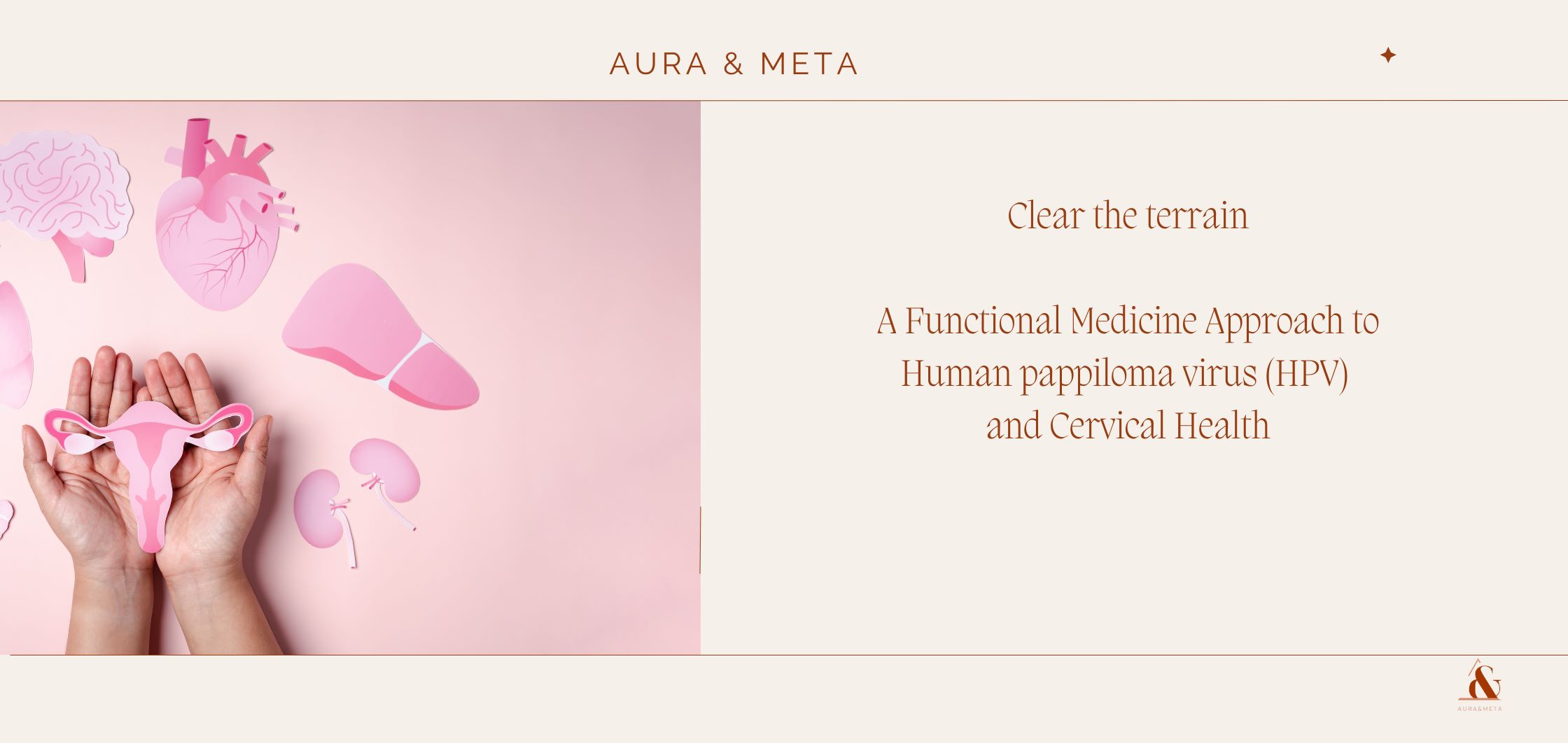Let me take you on a journey inside your body.
Imagine it as a garden. Each cell is a living part of that landscape. Your immune system acts as the gardener, constantly pruning, nourishing, and removing what does not belong. When a virus like HPV shows up, it is like an uninvited seed. In most people, the gardener removes it before it causes harm. But sometimes, when the garden is under stress or the soil is depleted, that seed takes root.
This is where cervical screening plays a vital role.
It is your regular garden check. But what if we went beyond the weeds and looked at the soil?
This is the essence of a functional medicine approach. It is not just about fighting the virus. It is about changing the terrain so the virus can no longer thrive.
What is HPV and Why Does Terrain Matter
HPV or human papillomavirus is the most common sexually transmitted virus. For many people, it clears naturally within a couple of years. But when it lingers, it can lead to abnormal cervical cells and, over time, increase the risk of cervical cancer.
Conventional care focuses on monitoring the changes. But functional medicine asks a deeper question:
What is happening in your body that makes it hard to clear the virus?
The answer often lies in your terrain. That includes your immune strength, how well you detoxify hormones like estrogen, your gut health, your stress levels, and even your genetics.
Why Genes Like MTHFR Matter
One important part of the terrain is how your body handles folate, a key nutrient needed for DNA repair and detox. This process depends on the MTHFR gene. Some people have variants like C677T or A1298C that make this process less efficient.
Studies show that people with these gene variants may have a higher risk of cervical cell changes when infected with HPV. Low folate levels are also linked to the development of cervical lesions.
If you have one of these genetic variations, your body may need more support to process folate and keep DNA healthy. This is where targeted nutrition comes in.
The Estrobolome and Estrogen Detox
Another overlooked piece of the puzzle is how your body metabolizes estrogen. Your gut plays a major role through something called the estrobolome. This is a group of bacteria that help regulate estrogen levels.
If this system is off, estrogen can be recycled back into the body rather than eliminated. This increases the risk of estrogen-sensitive cell growth, including in the cervix.
You can support estrogen balance by:
– Eating cruciferous vegetables like broccoli and kale
– Increasing fiber to help eliminate hormones
– Supporting your microbiome with probiotics and fermented foods
– Drinking plenty of water to support detoxification
What the Research Says About Nutrition and Cervical Health
Large studies like the European Prospective Investigation into Cancer and Nutrition show that women who eat more fruit and vegetables have a lower risk of cervical cancer.
Here are some key findings:
– Antioxidants like vitamins A, C, and E protect cervical cells
– High folate intake is linked to lower risk of cervical lesions
– A diet rich in beta-carotene from colorful vegetables supports immunity
Even green tea has been studied for its ability to reduce the impact of estrogen in HPV-positive women. Its natural compounds may help balance estrogen receptors and support the immune response.
Your Immune System Is Your Ally
HPV is not stronger than your body. But if your immune system is overwhelmed, distracted by chronic stress, lack of sleep, or nutrient deficiencies, it may not do its job as effectively.
Stress releases cortisol, which suppresses immune function and can even influence hormone balance. That is why emotional well-being is just as important as nutrition.
You can build resilience by:
– Prioritizing restful sleep
– Practicing breathwork or meditation
– Walking in nature daily
– Creating boundaries that protect your energy
When to Consider Testing
If you have had persistent HPV, abnormal Pap smears, or a family history of hormonal or methylation issues, consider functional testing. These may include:
– MTHFR and methylation-related genes
– Estrogen metabolite testing
– Gut microbiome analysis
– Nutrient levels including folate, B12, and zinc
Testing helps you understand your unique terrain and guide your next steps.
What You Can Do Now
Here is a simple action plan to support your cervical health:
1. Eat the rainbow every day to nourish your cells
2. Focus on folate from leafy greens and consider methylated B vitamins if needed
3. Support gut health with fiber and fermented foods
4. Reduce your toxic load by avoiding plastics, processed foods, and hormone disruptors
5. Get regular cervical screenings
6. Manage stress with practices that ground you
7. Explore genetic testing for deeper insight
A Final Thought
Your body is not broken. It may just need the right support to do what it already knows how to do, heal.
Cervical screening is important. But it is only part of the story.
Book your call today and give your body its best chance to clear HPV naturally and thrive long-term.

